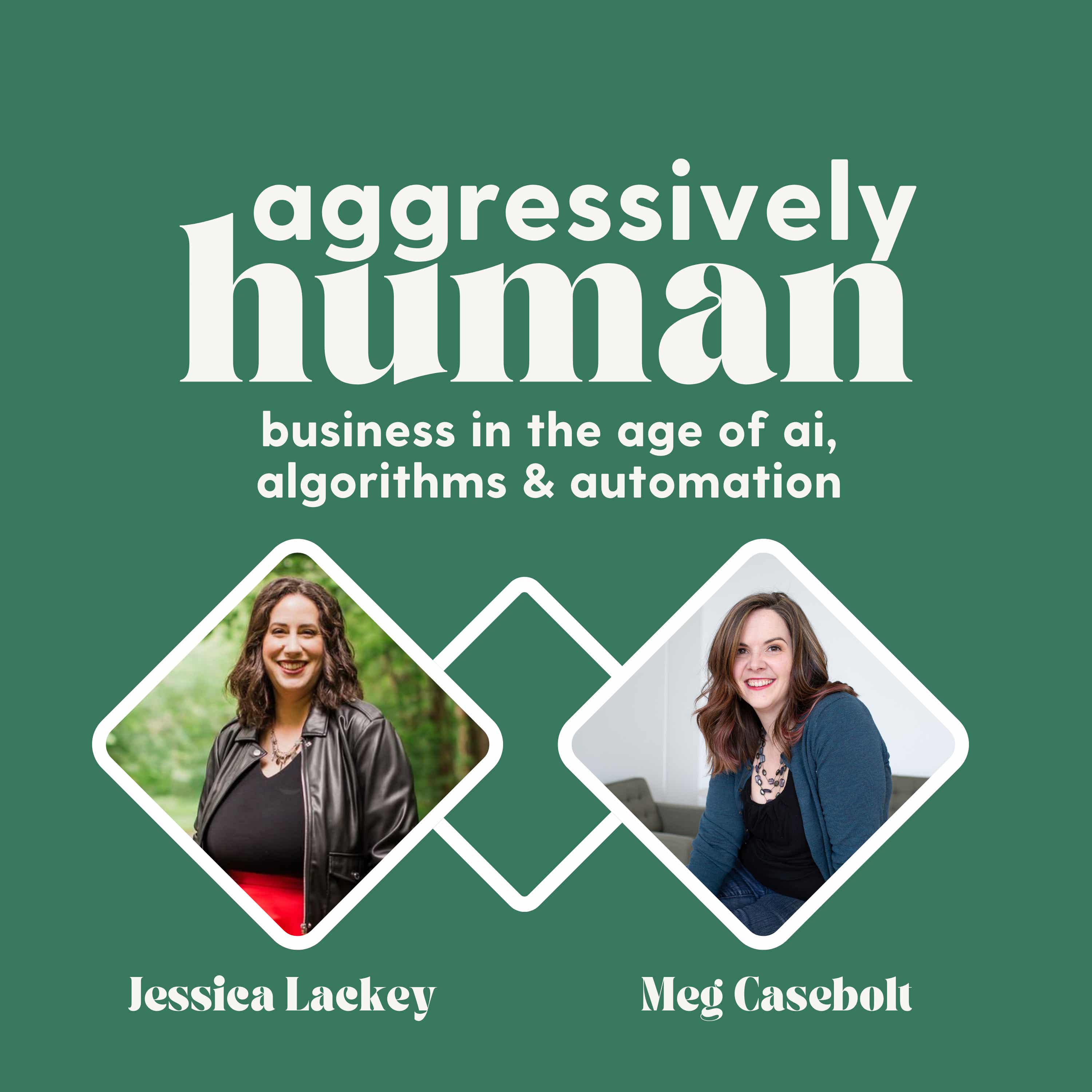Aggressively Human: Online Business in the Age of AI, Algorithms & Automations

Aggressively Human: Online Business in the Age of AI, Algorithms & Automations
Podcast Description
In a world focused on more: more content, more followers, more marketing, more scale, more noise… we’re facing less trust, less contact, less reach.
We’re drowning in AI-generated slop, being pitch-slapped by “personalized” email funnels that couldn’t be farther from authentic, and struggling to be seen by a pay-to-play algorithm.
It’s never been easier to create and connect more cheaply and at more scale, with less trust and more skepticism.
But for experts and service-based businesses? We’re seeing the pendulum swing back.
The answer isn’t to play by these trends. It’s to be **aggressively human.** aggressivelyhuman.substack.com
Podcast Insights
Content Themes
The podcast focuses on themes such as the human element in business amidst automation, community building, and marketing ethics, with specific episode examples exploring topics like the significance of dialogue in audience engagement, the power of community over commodities, and human-centered podcasting approaches.

In a world focused on more: more content, more followers, more marketing, more scale, more noise… we’re facing less trust, less contact, less reach.
We’re drowning in AI-generated slop, being pitch-slapped by “personalized” email funnels that couldn’t be farther from authentic, and struggling to be seen by a pay-to-play algorithm.
It’s never been easier to create and connect more cheaply and at more scale, with less trust and more skepticism.
But for experts and service-based businesses? We’re seeing the pendulum swing back.
The answer isn’t to play by these trends. It’s to be **aggressively human.**
It’s New Year, New You Time – which means it’s time for goal setting! (Cue the cheers and the groans).
But we have thoughts on traditional goal setting. In this conversation, we talk about how outcome based goals are often ineffective (and the fast path to burnout), and instead focusing on what’s in our locus of control.
We talk about the difference between “bottoms up” and “top down goals”, and how your stage of business and business model informs what matters. You’ll get to hear Jessica get on her soapbox about “10x is easier than 2x” goal setting, and hear us talk about how physics informs our approach to goals.
Plus hear OUR goals for 2026 — and most importantly, what we’re not doing this year.
* Why we both hate most New Year’s goal setting advice
* Outcome goals vs. output goals—and why the difference matters
* How goals fail when they ignore where you’re starting from
* Why revenue goals aren’t fully within your locus of control
* The problem with “just do more” as a strategy
* Force, leverage, and friction: three ways to change results
* How vanity metrics create performative productivity
* Saying no as an essential part of goal setting
* What we’re each choosing to focus on—and what we’re actively letting go of this year
Resources
Jessica’s 4 Part Planning Series
Meg’s Consistency Beats Virality (even When You Go Viral)
Connect with Us
This is a public episode. If you would like to discuss this with other subscribers or get access to bonus episodes, visit aggressivelyhuman.substack.com

Disclaimer
This podcast’s information is provided for general reference and was obtained from publicly accessible sources. The Podcast Collaborative neither produces nor verifies the content, accuracy, or suitability of this podcast. Views and opinions belong solely to the podcast creators and guests.
For a complete disclaimer, please see our Full Disclaimer on the archive page. The Podcast Collaborative bears no responsibility for the podcast’s themes, language, or overall content. Listener discretion is advised. Read our Terms of Use and Privacy Policy for more details.